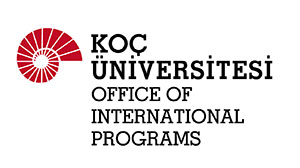Date: July 9 – 11, 2017
Venue: Koç University Main Campus
The Peacemakers Workshop is designed in the “train the trainer” format for the purpose of improving the sustainability and the reach of the program. Masters and PhD students, and representatives from NGOs working on migration issues are welcome to apply! Come and be a part of this empowering experience on one of the most important issues facing the region at present! Then take your gains back to your institution to share them with those around you!
As in the past two years, this year’s workshop will also be led by Dr. Govinda Clayton, a professional in the field of International Conflict Analysis, with an award for teaching innovation. He will mentor young leaders coming from around the world, who will engage in an interactive, intensive workshop aiming to overcome the dimensions of prejudice currently entrenched in global dynamics. The goal is to raise the future leaders who are respectful towards diversity.
The workshops that were led by Dr. Donna Hicks until 2014, and by Dr. Govinda Clayton in 2015 and 2016, gave an opportunity to 103 young leaders coming from various countries to engage in an interactive, evidence based, intensive workshop to overcome the dimensions of prejudice currently entrenched in the dynamics among those countries.
To apply the workshop:
First please fill out the online application form by clicking here.
After you filled out the form, please send your CV and a Letter of Intent* to peacemakers@ku.edu.tr
*Make sure your Letter of Intent includes why you are interested in this program, how you are planning to use the information given to you, what kind of change you want to create in this world, what kind of leader you hope to be etc.
Application deadline: June 5, 2017
Instructor

Dr. Govinda Clayton
Senior Researcher, Center for Security Studies, ETH Zurich
Dr. Govinda Clayton is a senior researcher in peace processes within the Center for Security Studies at ETH Zurich. His research interests include: negotiation; mediation; conflict management; civil war; bargaining theory; violence against civilians; non-state armed groups; pro-government militias; mathematical and statistical models; research design and methodology.
His doctoral research examined the use of third-party conflict management during civil war, in particular exploring the extent to which dyadic relations between belligerents influence the onset and outcome of mediation. His research remains primarily focused on negotiation and mediation during civil conflict, using advanced quantitative methods to systematically assess the conditions that shape the outcome of third-party led conflict management. He has published work in a number of leading international peer-reviewed journals, including: the Journal of Peace Research; International Studies Quarterly; Conflict Management and Peace Science; Cooperation and Conflict; and Studies of Conflict and Terrorism. Dr. Clayton is also the Deputy Editor of International Peacekeeping.
Beyond academia Dr. Clayton is actively involved in the development and practical use of conflict resolution methods. He is the executive director of the British Conflict Research Society (CRS) and a member of the Folke Bernadotte Academy conflict prevention working group. In a more practitioner ordinated role, Dr. Clayton has run negotiation capacity building workshops and peacebuilding projects in locations including: Rome, Istanbul, Beirut and Seoul. Dr. Clayton also consults with businesses and international organizations on conflict resolution methods.
Dr. Clayton is an award winning teacher who is involved in the development of innovative teaching methodologies. In particular he has been instrumental in the development of role plays and online simulations for teaching negotiation. His work in this area has been awarded the British International Studies Association award for teaching innovation, a Social Science Faculty Teaching Prize, and two Kent Union Awards for ‘Best Teacher’. He has previously taught at institutions including: The University of Kent (Canterbury, UK), Koç University (Istanbul, Türkiye), Philipps University (Marburg, Germany) and Kobe University (Kobe, Japan).
Selected Publications:
Clayton, Govinda & Tobias B ̈ohmelt. (2017) Auxiliary Force Structure: Paramilitary Forces and Pro- Government Militias. Comparative Political Studies Forthcoming.
Clayton, Govinda & Andrew Thomson (2016) Civilianising Civil Conflict: Civilian Defence Militias and the Logic of Violence in Intra-State Conflict. International Studies Quarterly 60(3): 499-510.
Clayton, Govinda (2015). Oil, Relative Strength and Civil War Mediation. Cooperation and Conflict 51(3):325-344.
Clayton, Govinda & Kristian Skrede Gleditsch (2014) Are They Helping Hands: Predicting the Onset and Outcome of Civil War Mediation. Conflict Management and Peace Science 31(3): 265-284.
Clayton, Govinda & Andrew Thomson (2014) The Enemy of My Enemy is My Friend….The Dynamics of Self Defence Forces in Irregular War: The Case of the Sons of Iraq. Studies in Conflict and Terrorism 37(11): 920-935.
Clayton, Govinda (2013) Relative Rebel Strength and the Onset and Outcome of Civil War Mediation. Journal of Peace Research 50(5): 605-622.
You can watch the video for Peacemakers 2016 workshop highlights; and also what applicants said about the workshop!
Testimonials
The best part was the negotiation skills. Being myself an academic, this section opened new ways on how to perceive and interpret certain issues which was highly relevant for my doctoral dissertation.
